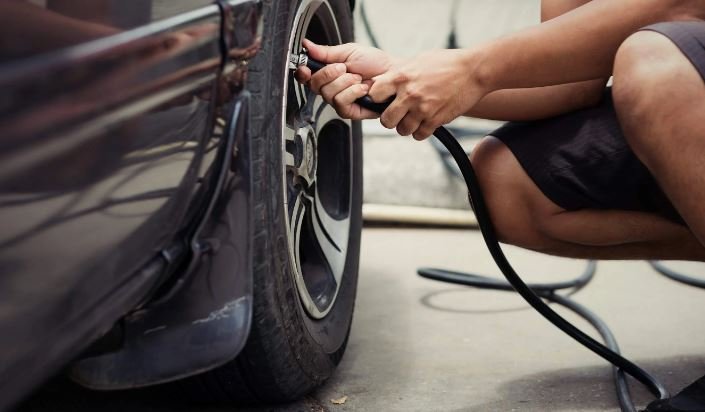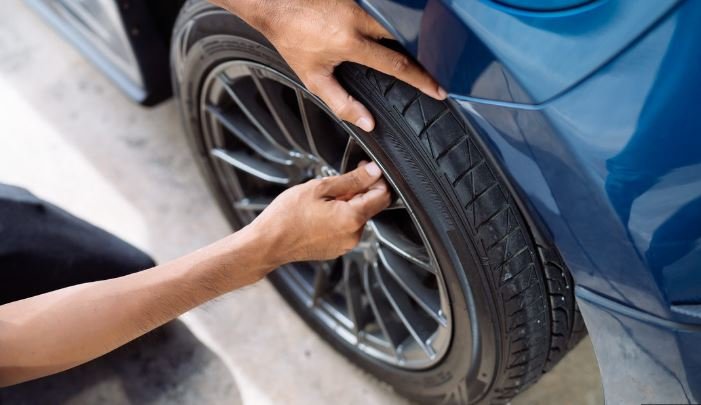Maintaining your wheels is crucial for ensuring vehicle safety, performance, and longevity. Regular care not only enhances the appearance of your wheels but also helps in maintaining optimal driving conditions. In this guide, I will share practical wheel maintenance tips to keep your wheels in top shape.

Regular Cleaning
Regular cleaning is the first step in wheel maintenance. Dirt, brake dust, and road grime can accumulate, leading to corrosion and damage. Use a mild wheel cleaner and a soft brush or sponge to clean the wheels. Avoid abrasive cleaners that can scratch the surface. Cleaning your wheels every few weeks helps prevent buildup and maintains their appearance.
Inspect for Damage
Frequent inspections for damage are essential. Look for signs of cracks, dents, or bent rims that could affect the wheel’s performance and safety. Inspect the wheels during routine tire rotations or oil changes. Addressing damage promptly can prevent further issues and ensure a safer driving experience.
Check Tire Pressure
Maintaining the correct tire pressure is vital for wheel health. Under-inflated or over-inflated tires can lead to uneven wear and potential damage to the wheels. Use a reliable tire pressure gauge to check the pressure regularly, and adjust it according to your vehicle’s specifications. Proper tire pressure improves handling and extends the life of your wheels.
Balance and Alignment
Proper wheel balance and alignment are crucial for vehicle stability. Misaligned or unbalanced wheels can cause vibrations, uneven tire wear, and steering issues. Have your wheels balanced and aligned by a professional if you notice any handling problems or after hitting a significant pothole. Regular checks help maintain smooth and safe driving.
Protect from Corrosion
Corrosion can damage your wheels, especially in areas with road salt or harsh weather conditions. Apply a wheel sealant or wax to create a protective barrier against moisture and chemicals. For alloy wheels, ensure that the clear coat is intact and free from scratches. Taking these wheel care tips steps helps prevent corrosion and extends the lifespan of your wheels.
Avoid Harsh Conditions
Avoid driving through harsh conditions that can damage your wheels. Potholes, curbs, and debris can cause significant harm to your wheels and tires. When possible, steer clear of rough terrain and drive carefully to minimize the risk of damage. Additionally, if you notice any issues after encountering rough conditions, have your wheels inspected promptly.
Regularly Check Lug Nuts
Lug nuts play a critical role in securing your wheels. Regularly check their tightness, especially after having tires installed or rotated. Use a torque wrench to ensure that they are tightened to the manufacturer’s specifications. Loose lug nuts can lead to wheel detachment and pose serious safety risks.
Rotate Tires
Tire rotation helps ensure even wear and extends the life of both your tires and wheels. Follow the manufacturer’s recommendations for tire rotation intervals, usually every 5,000 to 7,500 miles. Proper rotation helps maintain balance and performance, reducing the risk of uneven wear and damage.
Store Wheels Properly
If you need to store wheels, especially seasonal ones, do so properly. Clean them thoroughly before storing to prevent contaminants from causing damage. Store the wheels in a cool, dry place, and use tire covers to protect them from dust and sunlight. Proper storage helps preserve the condition of your wheels when they are not in use.
Seek Professional Assistance
Finally, seek professional assistance for complex wheel maintenance tips, tasks or repairs. While basic care can be done at home, issues like severe damage or alignment problems often require expert attention. A professional can provide a thorough inspection and address any issues to ensure your wheels remain in optimal condition.




